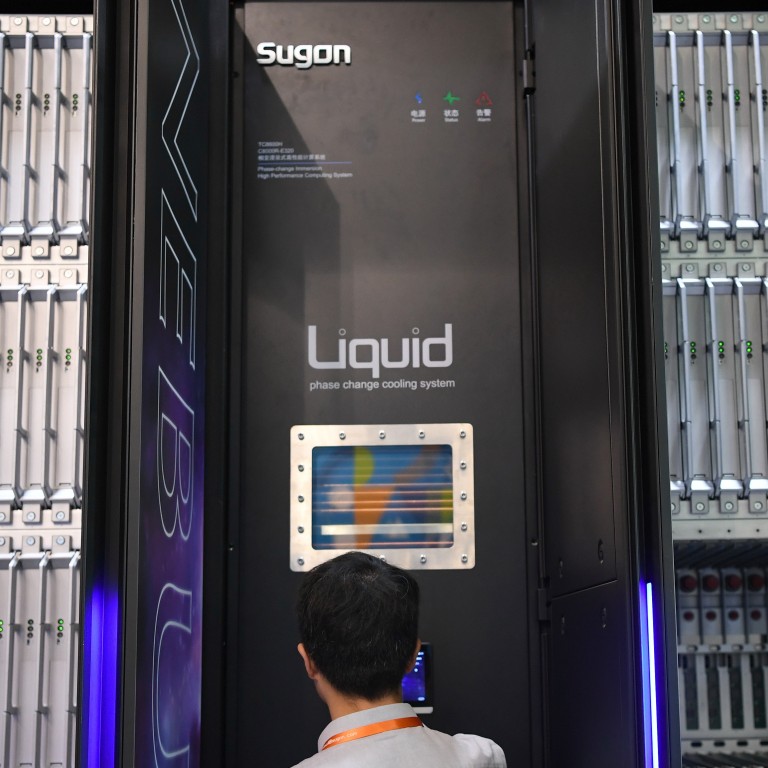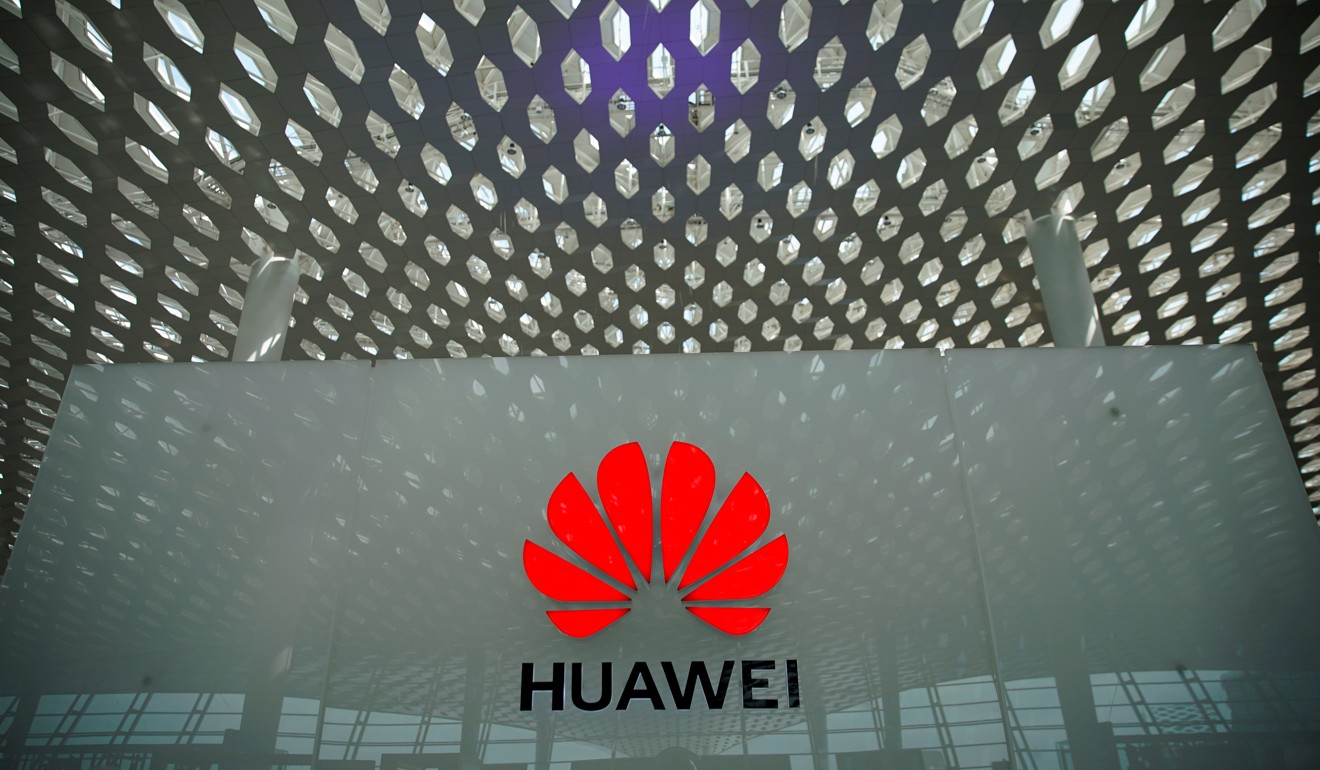
US bans exports to five Chinese technology entities, expanding trade battle to supercomputing
- Citing national security concerns, Washington has added the companies to its ‘Entity List’
The United States is blacklisting five Chinese organisations involved in supercomputing with military-related applications, citing national security as justification for denying its Asian geopolitical rival access to critical US technology.
The move on Friday by the US Commerce Department could complicate talks next week between US President Donald Trump and President Xi Jinping, aimed at de-escalating a trade dispute between the world’s two biggest economies.
The five blacklisted organisations placed on the so-called Entity List includes supercomputer maker Sugon, which is heavily dependent on US suppliers including chip makers Intel, Nvidia and Advanced Micro Devices.
The other four are the Wuxi Jiangnan Institute of Computing Technology and three Sugon affiliates. The Commerce Department called their activities “contrary to the national security and foreign policy interests of the United States”.
Sugon and the Wuxi Jiangnan Institute, which the US said is owned by a Chinese army research institute, are involved in China’s push to develop next-generation “exascale” high performance computing to assist with military modernisation. The technology involved supports such military-related tasks as running nuclear simulations, calculating missile trajectories and hypersonic algorithms, said Paul Triolo, technology analyst with the global risk-assessing Eurasia Group.
“This is all about the race to exascale computing, which China has designated as a major priority,” he said, adding that companies such as Sugon have received major government backing.
Is the US trying to break up the internet to contain Huawei?
Of particular concern to China hawks in the Trump administration, Triolo added, is Sugon’s move to develop a next-generation processor of its own. It licensed one generation of AMD technology as part of a 2016 joint venture in which a Sugon subsidiary has an ownership stake.
An AMD spokesperson said the company was reviewing the order “to determine next steps related to our joint ventures”.
In recent years, US and Chinese companies have been alternating as leading producers of the world’s fastest supercomputers. Sugon had 63 of the top 500 in the most recent rankings.
The blacklist effectively bars US firms from selling technology to the Chinese organisations without government approval. Last month, Commerce last month added telecommunications giant Huawei to it, heightening tensions with Beijing.
This is not the first time the US has placed on the Entity List a Chinese organisation involved in supercomputer development with military uses. In 2015 it added China’s National University of Defence Technology to the Entity List.

“The US is gradually squeezing off access to US technology for major elements of China’s next generation supercomputing,” said Triolo. The long-running campaign isn’t directly related to Trump’s current trade war with China.
Trump has imposed 25 per cent tariffs on US$250 billion in Chinese imports and is preparing to target another US$300 billion, extending the import taxes to virtually everything China ships to the US. China has retaliated with tariffs on US products.
Talks to resolve the dispute broke off last month. But Trump and Xi are scheduled to meet next week at the Group of 20 summit in Osaka, Japan, to get the negotiations back on track.
“Adding more Chinese companies to the US bad guys list may be seen as a way to ramp up the pressure on China,” said Amanda DeBusk, a partner at Dechert and the former Commerce Department assistant secretary for export enforcement. “However, the Chinese may see this as ill-timed bullying. They cannot be seen as making concessions to the United States, so this may have the effect of hurting any chances for trade agreement.”

